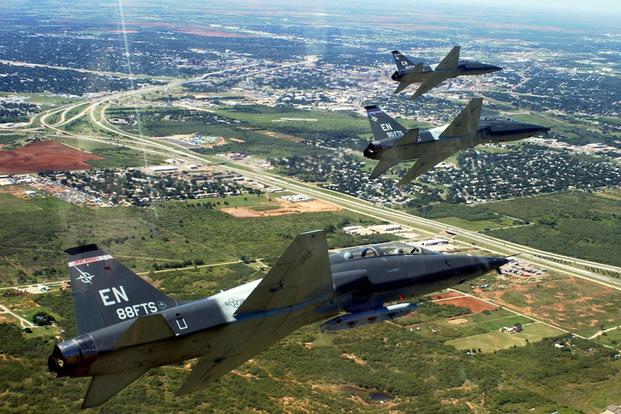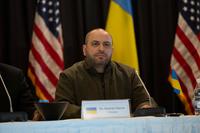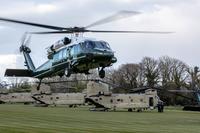Even as the Air Force struggles to deal with its own pilot shortage crisis, the service is working to train foreign pilots, especially from key allies like Turkey.
"We've really had to prioritize where we can place our fixed amount of resources against international pilot training," Air Force Chief of Staff Gen. David Goldfein recently told Military.com during an interview.
His comments came as the chief was traveling to the annual conference of the National Guard Association of the United States in Louisville, Ky., and after ongoing discussions with combatant commanders in the U.S. Central Command and U.S. European Command areas of responsibility on training needs.
Related content:
- Facing Pilot Shortfall, Air Force Challenged to Train Foreign Aviators
- Turkey Signs Landmark Russian Weapons Deal
- US to Turkey: Russian S-400s Aren't Compatible with NATO Tech
Turkey "is one of the top if not the top of priorities for training. So my direction to our team is, 'We need to move forward aggressively to support Turkey,' " Goldfein said during an interview aboard an Air Force C-37A.
"At some point, as [we're] aggressively supporting Turkey as they try to rebuild their air force as a strategic partner post-coup attempt, someone starts falling off that [training] list that I just can't get to [right away]," he added, referring to the attempted takeover last July by a group of Turkish armed forces.
The plotters failed to overthrow Turkish President Recep Tayyip Erdoğan, but strained relations between Turkey and the U.S. The countries share use of Incirlik Air Base, a critical installation for operations against the Islamic State in Iraq and Syria and throughout Europe.
The coup also rattled Turkey's armed forces -- nearly 500 generals and military pilots face trials and more than 45,000 people have been jailed for their alleged close ties to the plot.
The U.S. also has personnel stationed at NATO's Allied Land Command based at Izmir Air Station on the western coast and Turkey's Mugala base for training purposes.
The effort to maintain relations is steady, Goldfein said.
"We're also looking to try to get into some creative work with contracting as well, where we can work with a country that I just can't support because I'm out of pilots, or out of maintainers, so we're still looking at ways to try to get them what they need," he said.
Even as the U.S. works to partner with Turkey, Ankara has signaled an interest in partnering with Moscow on various weapons programs.
Turkey, a NATO ally, in July agreed to purchase four Russian-made S-400 mobile missile batteries known as the "Triumf" for $2.5 billion over the next few years. The advanced system has been spotted in Syria and can carry multiple, short- to very long-range missiles with a variety of sensor systems. Turkey finalized the deal this week.
When asked if recent news of Turkey cooperating more closely with Russia changes the dynamic with U.S. efforts, Goldfein said, "At the point where they start bringing others in who should not have access to our technology, or if they start buying into other systems that can't be in close proximity to our systems, that's a problem."
"What I tell all of our international partners is, they've got to protect the technology that we sell them … and there are rules that are driven primarily by the State Department to ensure that our technologies don't fall in the wrong hands," the chief said.
"I'm pretty blunt with our international partners that says, 'You don't want to go there,'" he said.
Goldfein said he has had "direct conversations" with his counterparts in Turkey "at the highest levels," but added "they are a sovereign nation" and can do as they please -- a point recently reiterated by Defense Secretary Jim Mattis.
"This is a sovereign decision," Mattis told reporters in July, even as he questioned Turkey's intended use. "We'll have to see, does it go through? Do they actually employ it? Do they only employ it in one area? But we'll have to take a look at it. Obviously, it's not going to be interoperable."
-- Oriana Pawlyk can be reached at oriana.pawlyk@military.com. Follow her on Twitter at @Oriana0214.





























